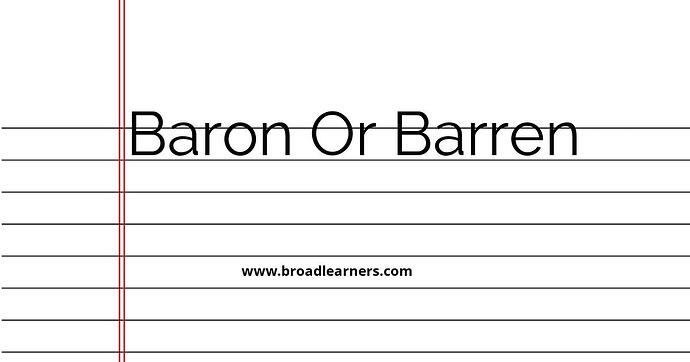'Baron' and 'barren' are commonly confused words in English grammar. Understanding the difference between 'baron' and 'barren' is important to use them correctly in written and spoken English.
'Baron' is a noun that refers to a member of a low-ranking nobility or a wealthy and influential person. It is often used to describe someone who holds a hereditary title of honor or who has great power and authority.
'Barren' is an adjective that describes land or a place that is unable to produce plants or crops. It can also be used to describe a person or situation that is unproductive, empty, or lacking in something.
Let's take a closer look at the meanings and usage of 'baron' and 'barren'.
| 'Baron' | 'Barren' |
|---|---|
| The word 'baron' is a noun that refers to a member of nobility or a wealthy and influential person. | The word 'barren' is an adjective that describes land or a place that is unable to produce plants or crops, or a person or situation lacking in something. |
|
|
To remember the difference between 'baron' and 'barren', it can be helpful to remember that 'baron' refers to a person of wealth or influence, while 'barren' describes a lack of productivity or fertility.
Here are some examples of correct usage:
- The baron held a lavish banquet at his estate.
- The farmer's fields were barren after the drought.
- She felt barren and empty after the loss of her loved one.
- The baroness was known for her charitable work.
Remembering the correct usage of 'baron' and 'barren' will improve your grammar and communication skills.
